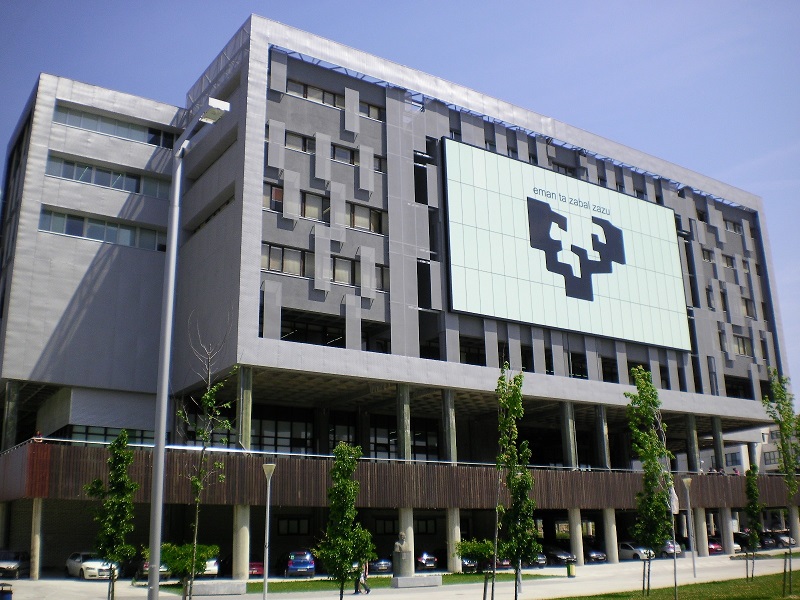
University of the Basque
The University of the Basque Country is a public university located in the Basque Country region of Spain. It was founded in 1980, The university is the largest university in the Basque Country, with over 45,000 students enrolled across its various degree programs. It offers a wide range of undergraduate and postgraduate degrees.
The university is structured into 18 different faculties and schools, covering diverse fields such as arts, sciences, engineering, medicine, and social sciences, They have strong students Basque community and actively engages with local and regional stakeholders.The university organizes numerous public lectures, cultural events, and educational programs to share knowledge and foster intellectual discourse , Most times often collaborates with local governments, businesses, and civil society organizations on various initiatives that contribute to the development of the Basque Country.
Research
University of the Basque places a strong emphasis on research, with numerous research groups and centers working on a variety of topics. It has established collaborations with universities and research institutions around the world
They also have strong research focus, with over 2,000 active research groups across its various departments and faculties.Key research areas include materials science, renewable energy, biomedicine, and social and cultural studies related to the Basque region.
UPV/EHU has established numerous research centers and institutes, such as the Basque Center for Climate Change, the Biophysics Unit, and the Aranzadi Science Society.

Research Strengths
UPV/EHU is recognized for its research excellence, particularly in the fields of materials science, energy, biomedicine, and environmental sciences.
The university has established several world-class research centers and institutes that attract top researchers from around the world.
Some of the university’s most prominent research areas include:
Advanced materials and nanotechnology
Renewable energy and energy efficiency
Biomedical engineering and biotechnology
Climate change and environmental sustainability
Social, cultural, and linguistic studies of the Basque region
Research Funding
UPV/EHU secures significant research funding from various sources, including the Spanish government, the Basque government, the European Union, and private industry partners.
The university actively participates in international research collaborations and networks, such as Horizon Europe, ERASMUS+, and bilateral agreements with other universities and research centers.
This allows UPV/EHU researchers to access cutting-edge facilities, share knowledge, and work on large-scale, interdisciplinary research projects.
Research Infrastructure and Facilities
The university has invested heavily in modern research infrastructure and facilities across its campuses.
This includes well-equipped laboratories, advanced instrumentation, high-performance computing resources, and specialized research centers.
UPV/EHU also operates several core facilities that provide centralized access to state-of-the-art equipment and technical expertise for researchers.
Research Impact and Commercialization
UPV/EHU’s research has a significant impact, as evidenced by its high publication record in peer-reviewed journals and the citations received by its researchers.
The university has a strong focus on translating research into practical applications and commercializing its innovations.
UPV/EHU has an active technology transfer office that supports the patenting and licensing of inventions, as well as the creation of spin-off companies.
Doctoral Programs and Research Training
The University of the Basque Country offers a wide range of doctoral programs across its various faculties and research areas.
These programs provide comprehensive research training and mentorship to prepare the next generation of researchers and scholars.UPV/EHU also offers postdoctoral fellowships and supports the professional development of its early-career researchers.
Campuses and student
As mentioned, UPV/EHU has three main campuses located in Bilbao, Leioa, and Vitoria-Gasteiz.
In addition to the main campuses, the university has satellite centers and facilities in numerous other cities and towns across the Basque Autonomous Community.
This broad geographic distribution allows the university to serve students throughout the Basque region.
UPV/EHU has a vibrant student life, with over 300 student associations and clubs covering various academic, cultural, and recreational interests.
The university provides modern facilities and amenities across its campuses, including libraries, computer labs, sports centers, and cultural venues.
Students have access to services like career guidance, tutoring, health care, and housing assistance.
The university also operates several museums, art galleries, and other cultural facilities that are open to the general public.
The university has a strong commitment to internationalization and has made significant investments to support its English-medium instruction. This includes providing language support services, organizing cultural and social events for international students, and ensuring that campus facilities and resources are accessible to students from diverse backgrounds
Admission requirements
Undergraduate Programs
- Secondary school diploma or equivalent, such as a high school diploma or International Baccalaureate (IB)
- Meeting the specific subject requirements for the desired program (e.g., prerequisites in mathematics, sciences, or languages)
- Proficiency in English demonstrated through standardized test scores (e.g., IELTS, TOEFL, or Cambridge English)
- Minimum grade point average (GPA) or equivalent, typically around 6.5 out of 10 (or 3.0 out of 4.0)
- Completed application form, including a personal statement or motivation letter
Graduate Programs
- Bachelor’s degree or equivalent, related to the desired master’s program
- Meeting the specific prerequisite requirements for the desired program (e.g., prior coursework in the field)
- Proficiency in English demonstrated through standardized test scores (e.g., IELTS, TOEFL, or Cambridge English)
- Minimum grade point average (GPA) or equivalent, typically around 7.0 out of 10 (or 3.5 out of 4.0)
- Completed application form, including a personal statement or motivation letter
- Potentially additional requirements, such as letters of recommendation or a research proposal
Doctoral Programs
- Master’s degree or equivalent, related to the desired doctoral program
- Demonstrated research experience and potential, often evidenced through publications or research projects
- Proficiency in English demonstrated through standardized test scores (e.g., IELTS, TOEFL, or Cambridge English)
- Strong academic performance, typically with a minimum GPA of 7.5 out of 10 (or 3.7 out of 4.0)
- Completed application form, including a research proposal and letters of recommendation
- Potentially an interview or additional selection process, depending on the program
